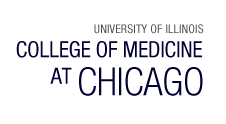Lycopene in Preventing Prostate Cancer in Healthy Participants
| Status: | Recruiting |
|---|---|
| Conditions: | Prostate Cancer, Cancer |
| Therapuetic Areas: | Oncology |
| Healthy: | No |
| Age Range: | 18 - Any |
| Updated: | 4/2/2016 |
| Start Date: | February 2006 |
Mechanism of Prostate Cancer Prevention by Lycopene
RATIONALE: Chemoprevention is the use of certain drugs or substances to keep cancer from
forming, growing, or coming back. The use of lycopene, a substance found in tomatoes, may
keep prostate cancer from forming.
PURPOSE: This randomized clinical trial is studying how well lycopene works in preventing
prostate cancer in healthy participants.
forming, growing, or coming back. The use of lycopene, a substance found in tomatoes, may
keep prostate cancer from forming.
PURPOSE: This randomized clinical trial is studying how well lycopene works in preventing
prostate cancer in healthy participants.
OBJECTIVES:
Primary
- Determine whether lycopene supplementation affects percent free and bound
prostate-specific antigen (PSA) in healthy participants.
Secondary
- Determine whether lycopene reduces oxidative stress in these participants, as indicated
by lipid peroxidation assay.
- Determine whether a 21-day washout period is sufficient to return lycopene, PSA, and
lipid peroxidation products to baseline.
OUTLINE: This is a randomized, placebo-controlled study. Participants are randomized to 1 of
3 treatment arms.
- Arm I: Participants receive an oral tomato dietary supplement containing lycopene twice
daily for 3 weeks.
- Arm II: Participants receive an oral tomato dietary supplement containing lycopene at a
higher dose twice daily for 3 weeks.
- Arm III: Participants receive oral placebo twice daily for 3 weeks. Urine and blood
samples are collected on days 0, 21, and 42.
PROJECTED ACCRUAL: A total of 150 participants will be accrued for this study.
Primary
- Determine whether lycopene supplementation affects percent free and bound
prostate-specific antigen (PSA) in healthy participants.
Secondary
- Determine whether lycopene reduces oxidative stress in these participants, as indicated
by lipid peroxidation assay.
- Determine whether a 21-day washout period is sufficient to return lycopene, PSA, and
lipid peroxidation products to baseline.
OUTLINE: This is a randomized, placebo-controlled study. Participants are randomized to 1 of
3 treatment arms.
- Arm I: Participants receive an oral tomato dietary supplement containing lycopene twice
daily for 3 weeks.
- Arm II: Participants receive an oral tomato dietary supplement containing lycopene at a
higher dose twice daily for 3 weeks.
- Arm III: Participants receive oral placebo twice daily for 3 weeks. Urine and blood
samples are collected on days 0, 21, and 42.
PROJECTED ACCRUAL: A total of 150 participants will be accrued for this study.
DISEASE CHARACTERISTICS:
- Healthy participants
- No existing prostate disease
PATIENT CHARACTERISTICS:
- Able to supply blood and urine samples
- Able to answer demographic and dietary recall questionnaires
- No hospital inpatients
- Not allergic to tomatoes or tomato products
- Not abusing alcohol or non-prescribed drugs
- No existing gastrointestinal disease or cancer
PRIOR CONCURRENT THERAPY:
- At least 2 weeks since prior lycopene (in supplement form)
- No concurrent participation in another clinical trial
We found this trial at
1
site
1801 West Taylor, Suite 1E
Chicago, Illinois 60612
Chicago, Illinois 60612
312.355.1625

University of Illinois Cancer Center The University of Illinois Cancer Center is dedicated to reducing...
Click here to add this to my saved trials